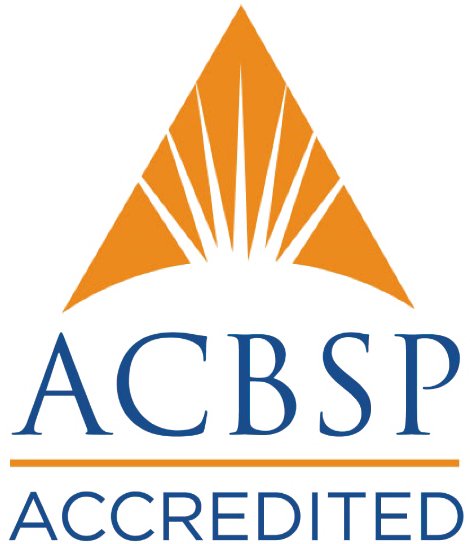
Master of Science in Organizational Leadership
Online
Complete your studies on your own time
Finish in 22 months
Average completion time
Next start date
Every Monday
Year-round enrollment

Next Date
Every Monday

Program Overview
Degree:
Master of Science in Organizational Leadership
Application:
$0 application fee. No essays/exams.
The Master of Science in Organizational Leadership (MSOL) program provides students with the knowledge to evaluate personal leadership skills and the components of leadership that contribute to the health of an organization, as well as how to apply leadership best practices in an organization.
Students will learn how to lead diverse teams, manage conflict, and create a positive culture of continuous improvement. This program can help prepare students for a position of leadership within a range of organizations, including government agencies, nonprofits, and the general business sector.
If you are looking for the former class-based MSOL—it has been renamed to MS in Leadership Studies (MSLS).
Degree Requirements
The Master of Science in Organizational Leadership is a 30 credit program comprised of 18 core credits, 9 specialization credits and 3 capstone credits. Graduates of the program must complete 30 credit hours. Students may select a discipline-specific specialization of their interest.
Applicants with a previously completed bachelor’s degree in business from a regionally or nationally accredited academic institution may immediately begin the MSOL program in our Direct Entry Track. Individuals who do not meet direct entry requirements will begin their degree plan with MSOL-500 – Leadership Development and Practice, followed by SKS-5001 – Comprehensive Strategic Knowledge Studies, and upon successful completion of SKS 5001 take the remaining courses in their degree plan
PRogram Requirements
9 Courses
Leadership Development and Practice
3.0 Credit Hours
In this course, you will begin to develop and enrich your leadership skills, while exploring historical trends in management through the lens of leadership theories and behaviors. In the leadership role, you will analyze and apply concepts and models to real organizational situations. Through self-assessments, explore your own leadership style, skills, and goals to create a personal leadership profile that will grow throughout the program.
Ethics and Decision Making
3.0 Credit Hours
In this course, you will continue your journey of leadership development through introspective reflection, examining your personal/organization values in business and societal settings. You will develop skills in ethical decision making to further enhance organizational performance and goal achievement.
People, Processes, and Organizational Health
3.0 Credit Hours
Today’s organization is immersed in a competitive and dynamic environment requiring adaptive organizational structures to increase capacity and create a framework for development and growth. Within the organizational environment, leaders must be equipped to resolve conflict. The emphasis in this course is on leadership and relationship styles among individuals within the organization. You will develop skills needed to lead diverse teams, develop others, and apply strategies to create a culture of continuous improvement.
Leadership: Change, Crises, and Communication
3.0 Credit Hours
Leading change is one of the most important and difficult challenges facing any leader. This course is an introduction to the role of leadership in managing change and responding to organizational crises. As a leader, you will analyze strategies for managing change as a constant state, evaluate situations for potential crises, and develop proactive approaches for crisis management. Effective communication strategies are key to successfully leading through these situations.
Leadership and Organization Strategy
3.0 Credit Hours
Organizational strategy is impacted by increasing globalization, uncertainty in the marketplace, and disruptive innovation. Leaders must respond by creating an organizational learning culture to promote strategic innovation, and adapt and grow in a constantly changing environment. This course helps you build the capacity for strategic leadership to meet organizational challenges. In the role of leader, you will learn to develop leadership strategies, skills, and tools required for creating a plan to reinforce organizational strategies and competitive growth.
Understanding Data
3.0 Credit Hours
You will learn to use data analytics that can be used for leadership development to guide your decisions, set priorities, and determine where to invest your times and resources. You will also utilize data analytics to assess an organization’s ability to effectively use data to compete in the 21st century marketplace.
Specialization Course 1
Specialization Course 2
Specialization Course 3
Capstone Professional Project
3.0 Credit Hours
In this capstone course, you will have the opportunity to apply the concepts and principles that you have learned throughout your Master of Science in Organizational Leadership program, after you first identify a challenge or issue that you choose to investigate, utilizing an organization that you are familiar with. This can include issues of diversity and awareness, communication problems, leadership issues, and conflict, to name a few. You will begin by recognizing the applicable stakeholders and then use relevant knowledge and data to construct a plan for addressing and resolving the challenge. The project will culminate in the creation of an assessment strategy for evaluating plan results. An important component of this course is a comprehensive self-analysis of your preparedness to act in a leadership role including an understanding of your own bias’, through the finalization of your Personal Leadership Profile that you have been working on throughout your degree program.
Specializations
Criminal Justice
The Criminal Justice specialization explores the dynamic nature of law enforcement, the courts, corrections, and the juvenile justice system in the United States and explores the nature of crime both domestically and internationally. This specialization focuses on developing advanced competencies and analytical capability for those seeking management and leadership positions in corrections, law enforcement, and the court system.
Human Resources Management
This graduate-level specialization focuses on the interrelationships between human resource capital, leadership, and the business organization. Students will explore all aspects of human resource management, and address the increasing human resource issues in the global economy.
Management of Virtual Organizations
This specialization focuses on acquiring knowledge and skills to support the management of virtual organizations. Students focus on a wide range of topics relevant to the manager overseeing virtual organizations. From theory to tactics, experienced professionals and entry-level candidates will build expertise in such diverse areas as virtual leadership, building trust in virtual teams, and legal and other implications that may arise in virtual organizations.
Project Management
This specialization explores principles, concepts, tools, and techniques to improve project performance and organizational effectiveness. Project Management is one of the fastest growing professional disciplines. Students examine all aspects of company projects including cost estimates, budget management, cost control, risk assessment, bid negotiation and contracts, and performance reporting critical to the success of any organization. The graduate specialization provides curriculum for students aspiring to take on project management responsibilities. This specialization focuses on risk management, procurement, monitoring, and multi-project management.
Health Services
Graduates of health services management programs are in demand in hospitals, health maintenance organizations, health insurance companies, government and public health agencies, and social service agencies. The focus of this health services specialization is to develop essential knowledge and skills necessary for effective healthcare management, including legal and ethical issues and the examination of the development of health policies.
Inclusive Leadership
This specialization will equip you with the insights, knowledge, and skills to go beyond traditional leadership and will prepare you to be a leader who can empower, energize, and inspire individuals, and unify diverse employees. You will become an agent of change who has the enhanced skills to lead an organization while being a champion and advocate for diversity, equity, inclusion, and social and economic justice. After completing this program, you will be able to make decisions that help to advance a unified and collaborative global workforce that functions effectively and efficiently, optimizing the organization’s effectiveness.
Nonprofit Management
In this specialization, students learn the fundamental principles of nonprofit management by exploring the roles and responsibilities of the management team and their efforts to maximize fundraising opportunities and maintain healthy budgets. Other areas that are covered include revenue generation, legal foundations, recruitment and management of volunteers, and promotion and marketing. Contemporary topics including diversity and ethics are also examined
Career Outlook
Here are some careers this degree could prepare you for:
Please select the state you will work in to view job data in your area
- Top Jobs in this field
- Median Salary
- Job Openings
- Fundraising Managers
-
$123,220
avg. salary (USA) -
3,951
job openings (past yr.) past year
ALl of USAMost Desired Skills
- Fundraising
- Project Management
- Sales Prospecting
- Finance
- Marketing
- Grant Writing
- Accounting
ALl of USATop Companies Hiring
- The Leukemia & Lymphoma Society
- American Heart Association
- National Multiple Sclerosis Society
- Alzheimer's Association
- American Red Cross
- State of Minnesota
- YMCA
- General and Operations Managers
-
$102,608
avg. salary (USA) -
364,681
job openings (past yr.) past year
ALl of USAMost Desired Skills
- Operations Management
- Marketing
- Project Management
- Finance
- Key Performance Indicators (KPIs)
- Continuous Improvement Process
- Process Improvement
ALl of USATop Companies Hiring
- CVS Health
- AutoZone
- Enterprise Mobility
- Amazon
- Enterprise Rent-A-Car
- Buckle
- Penske
- Sales Managers
-
$136,922
avg. salary (USA) -
55,888
job openings (past yr.) past year
ALl of USAMost Desired Skills
- Marketing
- Sales Management
- Selling Techniques
- Business Development
- Sales Prospecting
- Customer Relationship Management
- Sales Strategy
ALl of USATop Companies Hiring
- AutoZone
- Ross Stores
- Marriott International
- Ross-Shire Engineering
- Hilton
- US Foods
- Amazon
- Administrative Services Managers
-
$108,195
avg. salary (USA) -
25,048
job openings (past yr.) past year
ALl of USAMost Desired Skills
- Office Management
- Accounting
- Billing
- Accounts Receivable
- Administrative Support
- Accounts Payable
- Finance
ALl of USATop Companies Hiring
- Aramark
- Grease Monkey
- Lithia Motors
- Genesis HealthCare
- Cintas
- City of New York
- Brookdale Senior Living
- Human Resources Managers
-
$139,134
avg. salary (USA) -
21,404
job openings (past yr.) past year
ALl of USAMost Desired Skills
- Employee Relations
- Performance Management
- Talent Management
- Human Resources Information System (HRIS)
- Employee Engagement
- Human Resource Management
- Project Management
ALl of USATop Companies Hiring
- Amazon
- Deloitte
- Lumen Technologies
- GAF Materials Corporation
- Marriott International
- Walmart
- Prime Therapeutics
- Training and Development Managers
-
$126,299
avg. salary (USA) -
4,866
job openings (past yr.) past year
ALl of USAMost Desired Skills
- Project Management
- Learning Management Systems
- Instructional Design
- Continuous Improvement Process
- Adult Education
- Curriculum Development
- Organizational Development
ALl of USATop Companies Hiring
- Grifols
- Crunch Fitness Canada
- Atlas
- Ford
- Colonial Life
- Disney
- CBRE
- Management Analysts
-
$100,961
avg. salary (USA) -
116,342
job openings (past yr.) past year
ALl of USAMost Desired Skills
- Project Management
- Business Process
- Business Requirements
- Data Analysis
- Business Analysis
- Agile Methodology
- Process Improvement
ALl of USATop Companies Hiring
- Wells Fargo
- Lincoln Financial Group
- Elevance Health
- Deloitte
- Cardinal Health
- Accenture
- Prime Therapeutics
Program Learning Outcomes
Learn the key skills to help you excel in your field of study.
- Assess the current state of leadership practice within a given profession
- Evaluate the components of leadership that contribute to the health of an organization
- Apply best leadership practices within a given organization
- Evaluate themselves as leaders

Admissions
Next start date: Every Monday
Year-round enrollment
Transfer Students Welcome
Enrolling in a university is a big decision. That’s why our dedicated admissions team is here to guide you through the admissions process and help you find the right program for you and your career goals.
To that end, we’ve simplified and streamlined our application process, so you can get enrolled in your program right away. Because we accept and review applications year round, you can begin class as soon as next month, depending on your program and location of choice.
Learn more about undergraduate, graduate, military, and international student admissions, plus admissions information for transfer students. You can also learn more about our tuition rates and financial aid opportunities.
To speak with our admissions team, call (855) 355-6288 or request information and an advisor will contact you shortly. If you’re ready to apply, simply start your application today.

Pricing
The cost shown is the estimated price for this degree. Many National University students are eligible for scholarships or financial aid, which may substantially lower a degree program’s cost.
You can visit our Tuition Estimator to see what scholarships and discounts are available and get more information about expected costs. You can also start the application process and receive counseling from our Enrollment team on the costs of your degree
Scholarships and Financial Aid
National University is dedicated to making higher education affordable, as well as accessible. Through NU scholarship offerings, eligible students are able to reduce the financial burden of college, start classes sooner, and finish their programs faster while focusing on achieving their goals.
Accreditations

The Western Association of Schools and Colleges (WASC) accredits public and private schools, colleges, and universities in the U.S.

As a leading accreditation association for business education, ACBSP “develops, promotes, and recognizes best practices that contribute to continuous improvement of business education.” The Association emphasizes the importance of “learning how to learn,” by balancing teaching and research activities to enhance the quality of classroom instruction and contribute to student learning. To learn more about the ACBSP, visit their website.

Why National University?
We’re proud to be a Veteran-founded, San Diego-based nonprofit. Since 1971, our mission has been to provide accessible, achievable higher education to adult learners.
Today, we educate students from across the U.S. and around the globe, with over 245,000 alumni worldwide.

“National University has impacted my career. You can immediately apply what you learn in class to your business.”
Francisco R.,
Class of 2016
What makes a degree
with National University unique?
Free Tutoring Sessions
Access personalized tutoring sessions at no cost — empowering your learning.
Online
Flexibility meets quality education with our online learning option.
24/7 Support
Get assistance anytime, anywhere with our round-the-clock support services.
Military Friendly
Committed to serving those who serve — diverse resources and support for veterans and family. Military and Veteran Admissions.
Mentoring Network
Individual student and alumni career guidance, professional development opportunities, and customized career support.
Transfer Students Welcome
NU makes it easy to get your degree, even if you started it with another university. Learn more about transferring to NU.
Accelerate Your Career With NU
At National University, you’re part of a family. As a student, you’ll have the support of staff, faculty members, students, and alumni who will be there with you every step of the way, cheering you on as you pursue your goals.
Our network of 245,000 alumni is a large global community that provides our graduates with the professional connections to get a leg up in your new career.

Additional Resources
Program Disclosure
Successful completion and attainment of National University degrees do not lead to automatic or immediate licensure, employment, or certification in any state/country. The University cannot guarantee that any professional organization or business will accept a graduate’s application to sit for any certification, licensure, or related exam for the purpose of professional certification.
Program availability varies by state. Many disciplines, professions, and jobs require disclosure of an individual’s criminal history, and a variety of states require background checks to apply to, or be eligible for, certain certificates, registrations, and licenses. Existence of a criminal history may also subject an individual to denial of an initial application for a certificate, registration, or license and/or result in the revocation or suspension of an existing certificate, registration, or license. Requirements can vary by state, occupation, and/or licensing authority.
NU graduates will be subject to additional requirements on a program, certification/licensure, employment, and state-by-state basis that can include one or more of the following items: internships, practicum experience, additional coursework, exams, tests, drug testing, earning an additional degree, and/or other training/education requirements.
All prospective students are advised to review employment, certification, and/or licensure requirements in their state, and to contact the certification/licensing body of the state and/or country where they intend to obtain certification/licensure to verify that these courses/programs qualify in that state/country, prior to enrolling. Prospective students are also advised to regularly review the state’s/country’s policies and procedures relating to certification/licensure, as those policies are subject to change.
National University degrees do not guarantee employment or salary of any kind. Prospective students are strongly encouraged to review desired job positions to review degrees, education, and/or training required to apply for desired positions. Prospective students should monitor these positions as requirements, salary, and other relevant factors can change over time.
Back to top